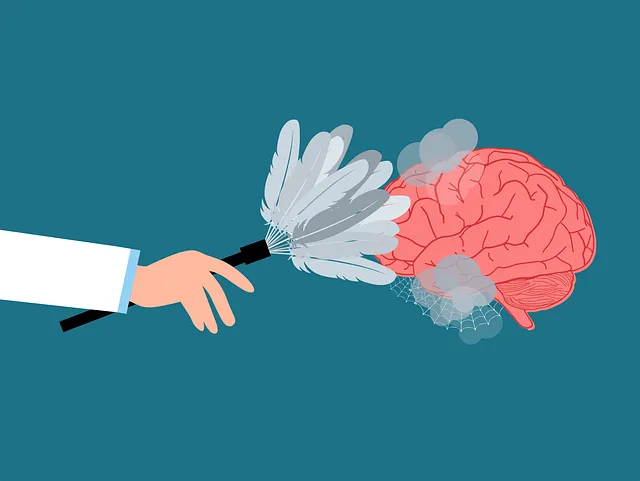In today's diverse healthcare landscape, cultural competency is vital for delivering quality patient care, especially in Longmont where Kaiser provides comprehensive services, including mental health therapy. Kaiser's commitment to cultural sensitivity includes tailored treatments, language accessibility, and burnout prevention strategies. Their training employs Compassion Cultivation Practices, Mental Health Policy Advocacy, and Self-Care Techniques to enhance provider-patient interactions across cultures. This approach ensures personalized, inclusive care, particularly in mental health sessions, improving patient satisfaction, outcomes, and resilience. Longmont residents can access comprehensive mental health therapy services at Kaiser that respect individual cultural identities.
In today’s diverse healthcare landscape, cultural competency is essential. Understanding and respecting various cultures, beliefs, and backgrounds significantly impacts patient care, especially in communities like Longmont where Kaiser provides mental health services and coverage. This article explores the significance of cultural competency training for healthcare providers, delving into effective training approaches and its profound effects on patient outcomes. Discover how Kaiser’s initiatives in Longmont exemplify a commitment to inclusive care, addressing mental health needs with cultural sensitivity.
- Understanding Cultural Competency in Healthcare: Why It Matters
- Kaiser's Mental Health Services and Coverage in Longmont
- Training Approaches for Enhancing Cultural Competence
- Benefits and Impact on Patient Care and Outcomes
Understanding Cultural Competency in Healthcare: Why It Matters

In today’s diverse healthcare landscape, cultural competency is more than a buzzword—it’s an essential component of quality patient care. Understanding and respecting different cultural backgrounds, beliefs, and values can significantly enhance interactions between healthcare providers and patients from various communities. This is particularly relevant in areas like Longmont where Kaiser covers mental health therapy as part of its comprehensive services, ensuring accessibility for all.
Cultural competency goes beyond simply being polite or aware of cultural differences. It involves integrating these understandings into clinical practice to improve patient outcomes and satisfaction. For instance, it might mean tailoring treatment plans to align with a patient’s spiritual practices or explaining medical concepts in a language they understand. By incorporating burnout prevention strategies for healthcare providers, such as community outreach program implementation and social skills training, healthcare organizations can foster an environment that promotes cultural sensitivity and reduces professional stress.
Kaiser's Mental Health Services and Coverage in Longmont

In Longmont, Kaiser’s mental health services and coverage are designed to address a wide range of psychological needs. The healthcare provider offers comprehensive care that includes therapy for conditions such as anxiety, depression, and burnout—all crucial aspects of mental well-being. With access to trained professionals, patients in Longmont can benefit from evidence-based practices aimed at self-esteem improvement and depression prevention. Additionally, Kaiser’s services cater to the unique cultural backgrounds of their patients, ensuring culturally competent care that respects individual identities.
For healthcare providers looking to enhance their skills, Kaiser provides training opportunities focused on burnout prevention strategies. These initiatives are vital in maintaining a healthy work-life balance for medical professionals and preventing them from experiencing the psychological toll often associated with their high-stress jobs. Longmont residents have the advantage of accessing these valuable resources, ensuring they receive the best possible mental health support.
Training Approaches for Enhancing Cultural Competence

Cultural competency training within healthcare involves several effective approaches to enhance understanding and interaction across diverse cultural backgrounds. One key method is incorporating Compassion Cultivation Practices into the curriculum, fostering empathy and reducing biases that may impact patient care. These practices encourage healthcare providers to step into patients’ shoes, promoting a deeper appreciation for cultural differences and personal experiences.
Additionally, Mental Health Policy Analysis and Advocacy plays a vital role in training. By examining existing policies and advocating for changes that support culturally sensitive mental health services, trainees learn to navigate systemic barriers. This approach ensures that healthcare providers not only deliver quality care but also contribute to shaping policies that address the unique needs of diverse communities. Furthermore, teaching Self-Care Practices is essential; providers must prioritize their well-being to sustain cultural competency over time. Self-care strategies help manage stress and prevent burnout, enabling professionals to remain receptive and responsive to patients’ diverse needs.
Benefits and Impact on Patient Care and Outcomes

Cultural competency training for healthcare providers offers significant benefits and has a profound impact on patient care and outcomes. By equipping professionals with the skills to navigate diverse cultural backgrounds, healthcare organizations like Kaiser in Longmont can foster more inclusive and effective interactions. This training enables providers to better understand patients’ unique needs, beliefs, and preferences, ensuring personalized care that respects individual cultural identities.
For example, mental health therapy sessions can be transformed when therapists are culturally competent. They can adapt communication strategies, incorporate relevant cultural references, and offer tailored support for specific communities. This approach not only enhances patient satisfaction but also encourages open dialogue about sensitive topics like mental wellness. The result is improved access to care, better management of mental health conditions, and ultimately, positive changes in patient outcomes. Moreover, training can include guidance on mental wellness journaling exercises and coping skills development, empowering both providers and patients to navigate challenges with cultural sensitivity and resilience.
Cultural competency training is a game-changer in healthcare, especially with Kaiser’s comprehensive mental health services in Longmont. By understanding diverse cultural contexts, healthcare providers can significantly enhance patient care and outcomes. Training approaches discussed, such as immersive simulations and community partnerships, offer effective ways to navigate the complex landscape of cultural differences. Ensuring that patients from all backgrounds receive quality mental health therapy, just like those covered by Kaiser in Longmont, is paramount for a more inclusive and compassionate healthcare system.






